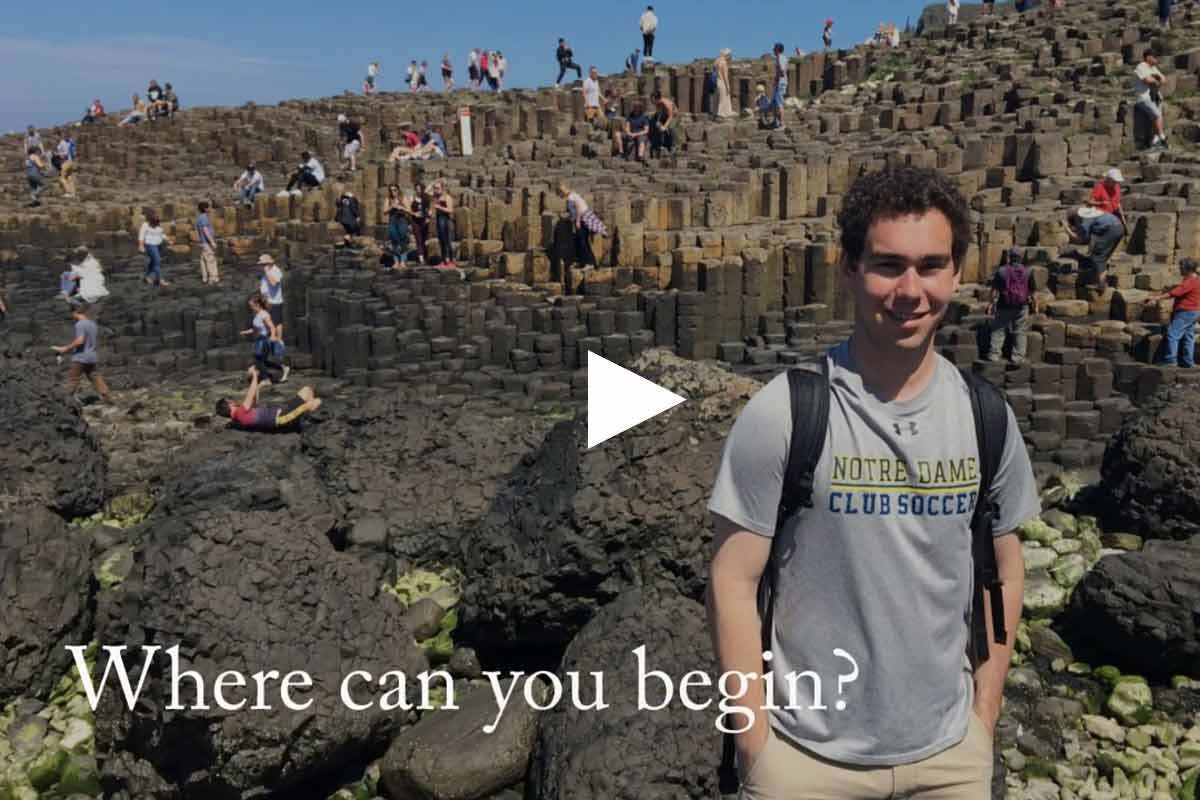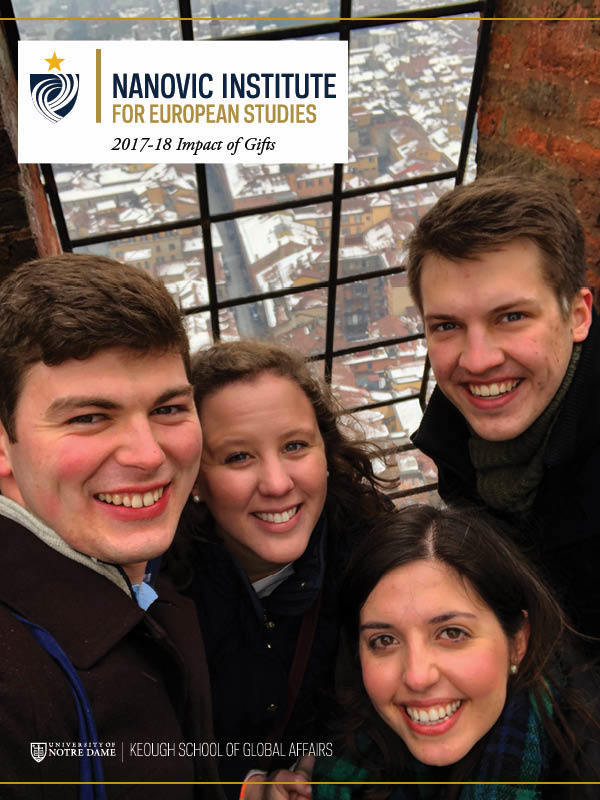- Please familiarize yourself with our grant requirements before starting the application process. View deadlines.
- Students receiving partial project funding from other Notre Dame offices and who meet with the Nanovic Institute's student coordinator for grant advising have an increased likelihood of success.
- Note that these grants are not intended to fund study abroad programs, fee-based programs, or group projects.
- Successful projects articulate a clear connection to Europe and European Studies.
- Certain undergraduate students engaged in human subjects research (i.e., interaction with a living person or private information from existing data, documents, records or diagnostic specimens) must have their projects approved by the Institutional Review Board (IRB). It is the student's responsibility to review the guidelines and begin the IRB approval process (when necessary) prior to applying for a grant. Human research projects cannot receive funding without IRB approval.
- Look over past student projects online or in our 2017-18 publication.
- Make an appointment or stop-in to talk with our advising team.
New Research Priorities
Given the urgent problems facing Europe today, the Nanovic Institute now strongly encourages a "pivot to policy." By this we mean that faculty and students are now strongly encouraged bring their academic training, whether in the humanities, arts, sciences, or social sciences, to bear on questions and topics that have contemporary implications in the following areas:
1. Immigration and the Challenge to National Identities. The arrival of migrants, immigrants, and asylum seekers from the Middle East and Africa directly fueled the rise of right-wing populist leaders throughout Europe. How can such challenges be met both effectively and in a way that respects human dignity?
2. Religion and the State. In Europe today, it is impossible to ignore religious prejudice (e.g. Islamophobia), assertions of authentic or spurious religious identity, and the role of the secular state either as a mediating institution or force for religious or anti-religious bias. How have assertions of religious identity challenged definitions of political identity? The situation of eastern European Christianity is especially interesting in the consideration of such questions.
3. European Integration and the Fate of the EU. After the catastrophe of two major world wars, political leaders in Europe sought to create supranational economic and political institutios that would integrate nations and reduce the incentives for conflict between them. What has been the fate of such projects, and how can they be improved? How has political populism affected European democracy and peace? To what extent are political changes in Europe affecting Europe's relationships around the world?
The above topics and questions are not intended to be exhaustive, nor are they intended to preclude other topics of research. The Institute still welcomes other topics in European studies and will support them. The Institute warmly invites such discussion.
Students should make special note that successful applicants have first discussed their proposals with appropriate faculty and Institute advisors.
Make an Appointment
For guidance about the student grants process, contact:
Chris Stump
Student Coordinator
cstump@nd.edu
574-631-8326
Drop-In Advising Hours: Wednesday: 3:00 - 4:00pm; Thursday: 1 - 3:00pm Additional appointments available by request
For guidance about your research question and methodology, contact:
Mark Kettler
Postdoctoral Scholar in Residence
mkettler@nd.edu
Drop-In Advising Hours: Tuesday - Wednesday: 3:30 - 5:00pm; Thursday - Friday: 11:00am - 1pm
Grant Deadlines
Summer Recess (Deadline: February 22, 2019)
Summer Travel and Research Grants

